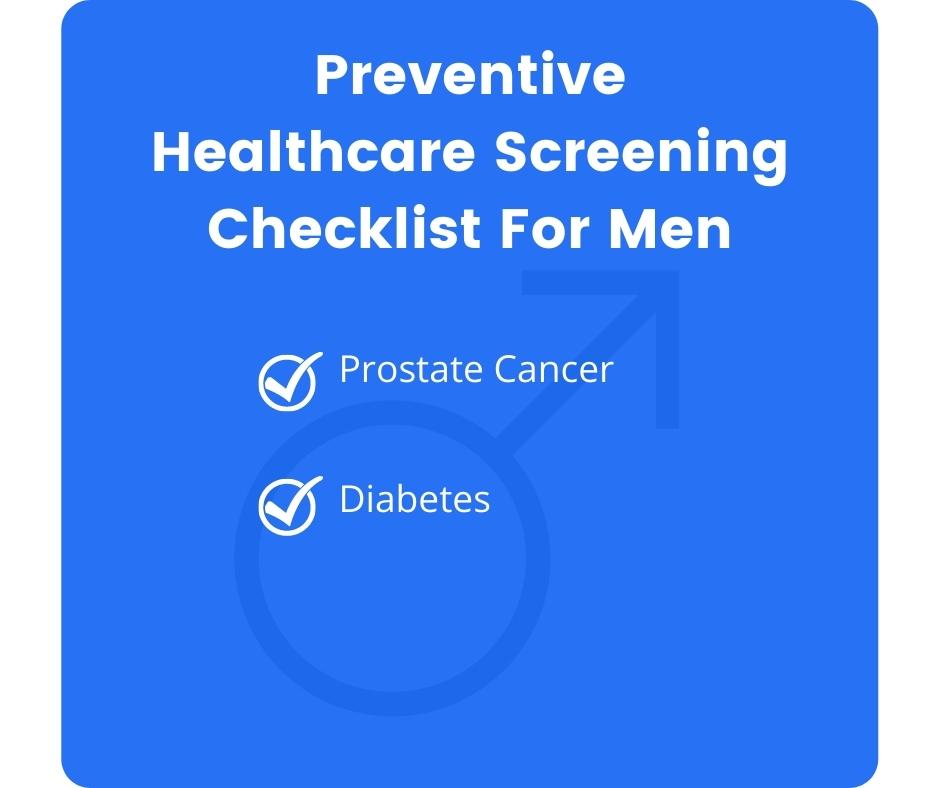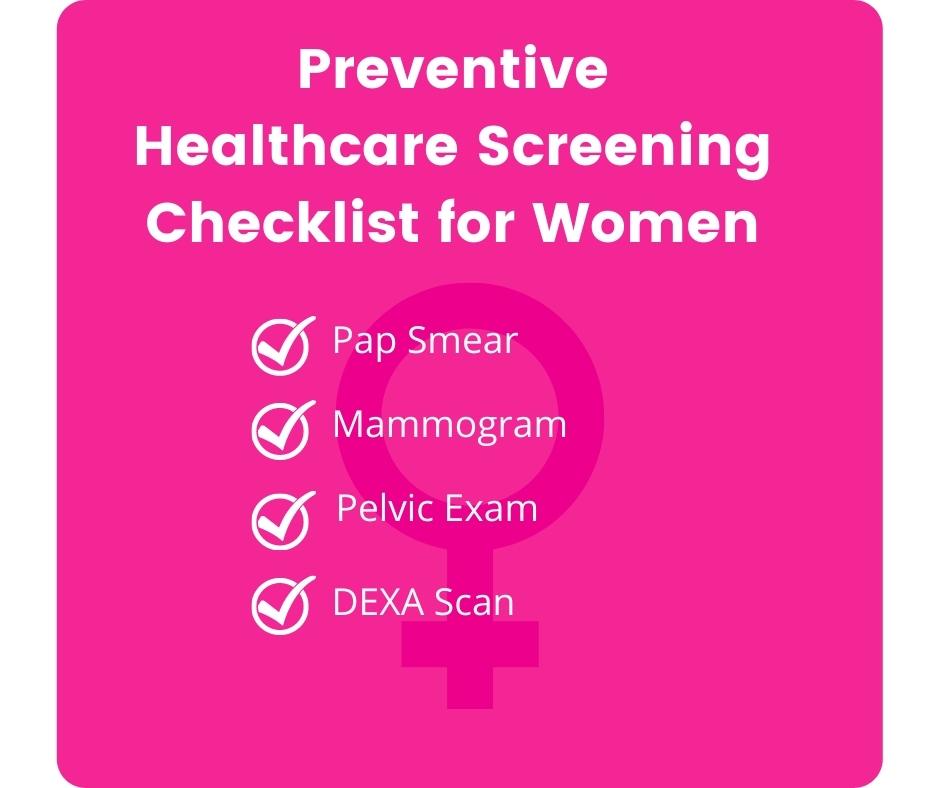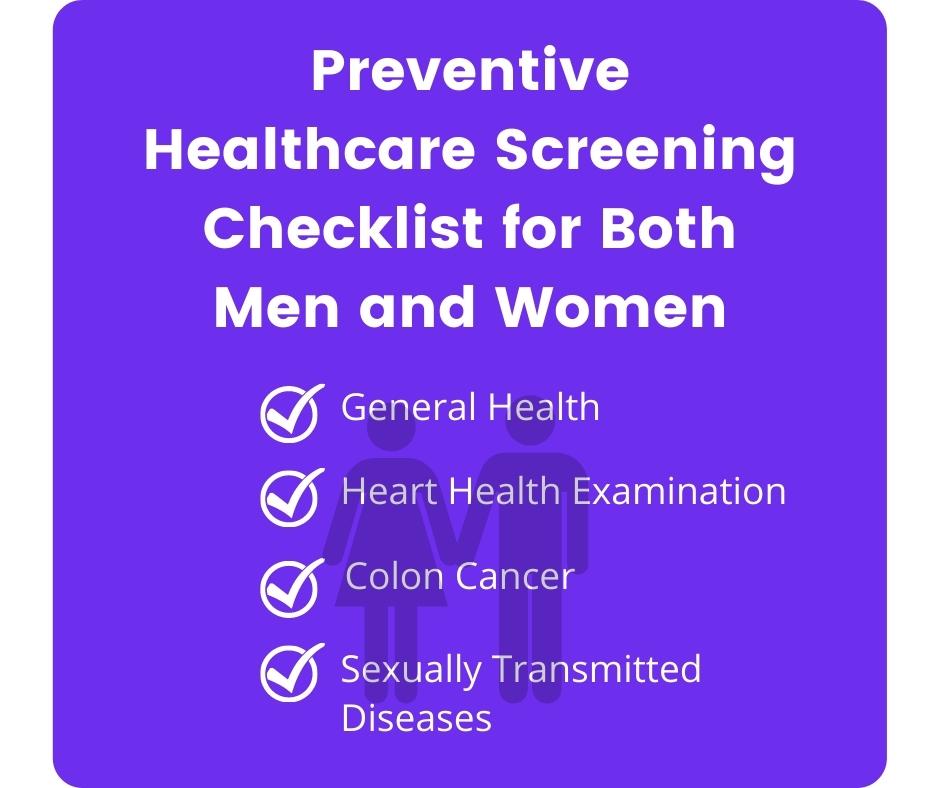We’ve all heard that prevention is better than cure but how many of us actually live by it?
Did you know that nearly 1% of all Americans, which amounts to nearly 3.31 million people, have reportedly never received a healthcare checkup in their life? This is despite the well-known fact that chronic diseases such as diabetes, cardiovascular diseases, and cancer account for almost 7 out of every 10 deaths in the United States each year. A significant number of these deaths can be largely prevented with the help of preventive healthcare.
Preventive healthcare screening is the key to preventing future illnesses and detecting health problems at an early stage when they can be treated easily. Keep reading to learn more about how preventive healthcare screening can prevent or delay the onset of severe chronic illnesses and what tests you need to perform in a preventive screening checklist.
Table of Contents
TogglePreventive Healthcare Screening Checklist is Different for Men and Women
Not only do men and women have different bodies but they also have different healthcare requirements that keep evolving throughout their lives.
Some diseases are much more likely to affect women than men and vice versa. For example, women are at a much greater risk of heart disease than their male counterparts. Similarly, diseases such as Parkinson’s are more likely to affect men than women.
This is precisely why preventive healthcare screening checklists are different for men and women. However, the ultimate goal of the screenings remains the same: prolong life and reduce the incidence of diseases.
Preventive Healthcare Screening Checklist For Men

Here are some of the most crucial diseases that should be screened for regularly in men:
1. Prostate Cancer
According to the CDC, 13 out of every 100 men in the US develop prostate cancer in their lifetime. This is why getting tested for prostate cancer should be essential in your preventive healthcare screening checklist, especially if you are at a greater risk of contracting the disease. Factors that can increase the risk of getting prostate cancer include being of African-American descent, old age, obesity, and genetics.
It is recommended for men above the age of 50 to regularly talk to their doctor about whether they should get a prostate-specific antigen (PSA) test done to look for prostate cancer.
2. Diabetes
While the symptoms of the disease are the same, men are much more likely to develop diabetes than women. If you’re obese (BMI > 30) or have any of the other risk factors of the disease such as a family history of diabetes, high levels of cholesterol, or hypertension, then you should consider getting screened for diabetes at least once each year. Additionally, the American Diabetes Association recommends getting screened for diabetes once every three years starting at the age of 45.
Preventive Healthcare Screening Checklist for Women

1. Pap Smear
The Human Papillomavirus (HPV) is extremely common in women with the highest rate of infection being seen in women between the age of 20 to 24 years old. It is recommended for women to get a pap smear to detect HPV and cervical cancer once every 3-5 years following the age of 21.
2. Mammogram
About 13% of all women develop breast cancer in their lifetime. Mammograms are considered the gold standard for detecting breast cancer at an early stage in women.
Women above the age of 50 with a personal and family history of breast conditions are much more likely to develop breast cancer and should thus get a mammogram at least once every year. Even women who do not have any of the other risk factors but are above the age of 50 should undergo a mammogram screening once every three years.
3. Pelvic Exam
A pelvic examination of a woman’s external and internal reproductive organs can help catch any abnormalities in these organs at an early stage when they can be treated easily. A doctor will be able to best advise how often you should get this examination performed based on your age and other risk factors.
4. DEXA Scan
DEXA scans are used to screen for a condition known as osteoporosis in women. Osteoporosis causes your bones to become weak and brittle, significantly increasing the risk of fractures. It is well-known that the incidence of osteoporosis in women is four times than that of their male counterparts with women over 50 years old being at the greatest risk of developing the disease.
Women aged 65 years or above with a normal bone mass are recommended to get a DEXA scan every 15 years. More frequent testing is recommended for women with low bone mass in their previous DEXA scan.
Preventive Healthcare Screening Checklist for Both Men and Women

1. General Health
Getting a general health check-up every year should be on top of your preventive healthcare screening checklist. Regular general visits to the doctor can help them detect potential health issues such as hypertension, high blood pressure, mental disorders, and gastrointestinal problems before they develop into a serious health scare.
A general health checkup will include screening for common health problems, a physical examination, and education and counseling from a doctor to help you make better health decisions in the future.
2. Heart Health Examination
Heart disease causes 1 out of every 4 deaths in the US, making it one of the leading causes of morbidities in the country. Timely cardiovascular health checkups can significantly reduce the prevalence of heart disease.
To monitor your cardiovascular health, a doctor may check your blood pressure, blood sugar levels, heart rate, weight, and blood cholesterol. If your doctor thinks you may have heart disease, he may also order an ECG, exercise cardiac stress test, echocardiography, or angiography.
According to the American Health Association, you should get your blood pressure tested at least one time every 2 years, starting by the age of 20 and your blood cholesterol tested at least once every four to six years, beginning from the age of 20.
3. Colon Cancer
Colon cancer is the third most commonly occurring cancer in men and the second most commonly occurring cancer in women. (Source1) Colon cancer screenings are recommended for everyone following the age of 50. Screening may also be recommended at an earlier age if the patient has a family history of the disease or has any of the other risk factors.
Several screening tests may be conducted to test for colon cancer including stool examinations and tests such as a fecal immunochemical test (FIT), FIT-DNA test, or guaiac-based fecal occult blood tests (gFOBT). If your stool test is positive, the doctor may order a sigmoidoscopy or colonoscopy, which are more invasive tests to confirm their diagnosis. The type of the test and the frequency of it can be best advised by your healthcare provider.
4. Sexually Transmitted Diseases
Men and women who are sexually active should be regularly tested for STDs. The frequency and the type of test that needs to be performed vary from person to person based on several factors such as age, sex, and lifestyle choices.
The Bottom Line
Preventive healthcare will always be an investment. If you put in the time and effort today to take care of your health, it will end up paying dividends for you in the future in the form of a longer lifespan, lesser medical issues, and overall better quality of life.
No matter how good you are in health today, ticking all the necessary tests off your preventive healthcare screening checklist can help you take control of your health. At HG Analytics, we are determined to provide you with engaging and crucial information about the medical world.





